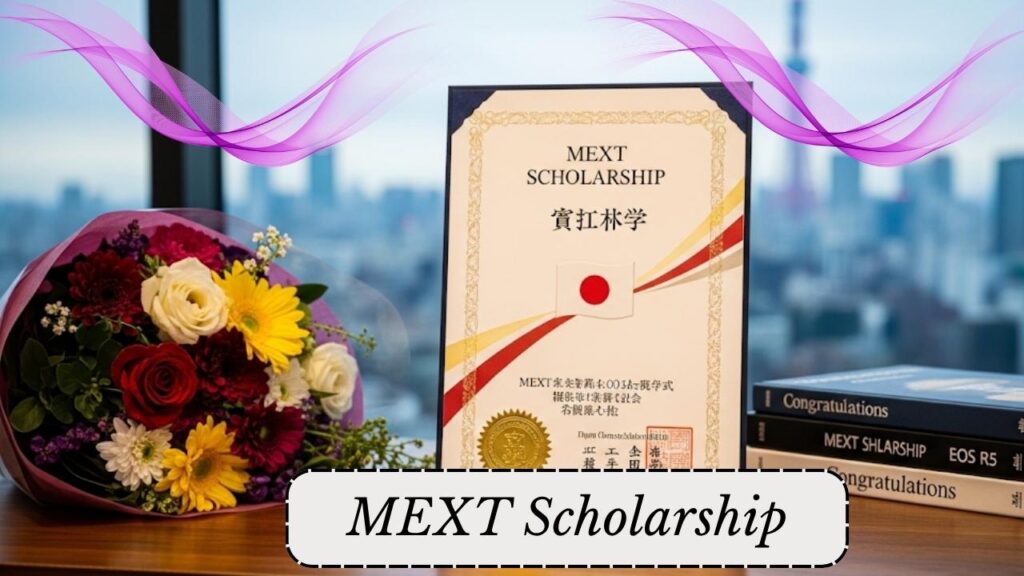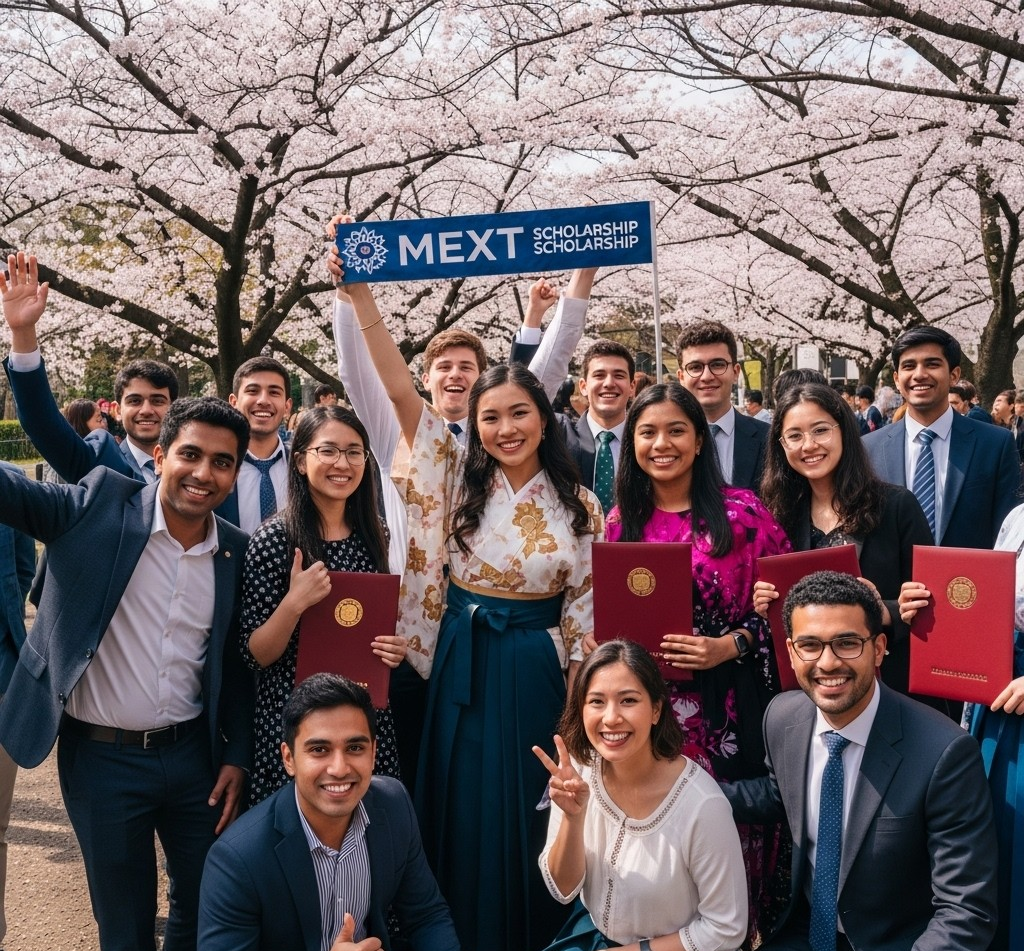Has your dream of studying in Japan been simmering, perhaps even reaching a rolling boil, only to realize that the MEXT 2026 applications have already closed? Take a deep breath. While it’s natural to feel a pang of disappointment, this moment isn’t a setback; it’s an invaluable head start. The truth is, the competitive nature of the MEXT Scholarship means that preparation should begin long before the official application period opens. For aspiring scholars looking towards the MEXT 2027 intake, the time to act is now.

The MEXT (Ministry of Education, Culture, Sports, Science and Technology) Scholarship is one of the most prestigious and fully-funded scholarships globally, offering an unparalleled opportunity to pursue higher education in Japan. From covering tuition fees and providing a generous monthly stipend to including round-trip airfare, it truly removes financial barriers, allowing you to immerse yourself fully in your studies and the vibrant Japanese culture. I’ve seen countless students transform their lives through this scholarship, and the secret to their success often lies in proactive, strategic preparation.
Understanding the MEXT Scholarship: A Foundation for Your Future
The MEXT Scholarship is a gateway to world-class education and an immersive cultural experience. Japan’s universities are renowned for their cutting-edge research, innovative teaching methods, and a strong emphasis on practical skills. As a MEXT scholar, you become part of a global network of bright minds, fostering international understanding and contributing to academic advancement.
MEXT Scholarship
| Key Fact | Detail/Statistic |
| Full Funding | Covers tuition, round-trip airfare, and provides a monthly stipend (approx. ¥143,000-¥163,000 depending on level). |
| Scholarship Types | Research Students (Master’s/PhD), Undergraduate Students, Teacher Training Students, Japanese Studies Students, College of Technology Students, Specialized Training College Students, Young Leaders Program (YLP). Team Language Services |
| Application Routes | Embassy Recommendation and University Recommendation. |
| Eligibility (General) | Nationality of a country with diplomatic relations with Japan, age limits (varies by program), good physical/mental health, willingness to learn Japanese. UNOOSA |
The closing of the MEXT 2026 applications isn’t an end; it’s a powerful signal to begin your strategic preparation for the MEXT 2027 intake. This is your chance to stand out from the crowd by investing time now in strengthening your academic profile, honing your language skills, and crafting compelling application materials. Japan offers an enriching academic and cultural experience that can profoundly shape your future. Start planning, researching, and preparing today, and you’ll be well on your way to making your dream of studying in Japan a vibrant reality.
The MEXT 2027 Intake: Your Strategic Preparation Blueprint
While the official guidelines for MEXT 2027 won’t be released until early 2026, the core requirements and application process remain largely consistent year-to-year. This consistency is your biggest advantage. Think of this preparation period as building a robust foundation for your future success.
1. Master Your Academic Profile: The Core of Your Application
Your academic record is paramount. For research students, a strong GPA (typically 2.30 or above out of 3.00, or equivalent) is crucial. For undergraduate applicants, consistent excellent grades throughout your schooling are essential.
- Review and Improve Your GPA: If you’re still in university or college, focus intensely on improving your grades. Every percentage point counts in a competitive scholarship like MEXT.
- Identify Your Research Niche (for Graduate Students): Begin exploring potential research topics and identify professors in Japanese universities whose work aligns with your interests. This is critical for crafting a compelling research proposal. Start reading academic papers in your field, particularly those published by researchers in Japan.
- Gather Transcripts and Certificates: Begin the process of obtaining official transcripts from all your previous educational institutions. Ensure they are correctly attested and, if necessary, translated into English.
2. Sharpen Your Language Skills: English and Japanese Proficiency
While Japanese language proficiency isn’t always a strict prerequisite for all MEXT programs (especially for English-taught courses), a willingness to learn Japanese is a key criterion. For many programs, especially at the undergraduate level, a preparatory Japanese language course is mandatory. However, demonstrating prior proficiency can significantly strengthen your application.
- English Language Tests: Prepare for and take standardized English proficiency tests like TOEFL or IELTS. Many English-taught programs require scores corresponding to CEFR B2 level or higher.
- Japanese Language Learning (KW2: Japanese Language Proficiency):
- Beginner Level: Enroll in a beginner Japanese language course. Even basic conversational ability can set you apart and show your commitment.
- JLPT (Japanese Language Proficiency Test): If possible, aim to clear at least the N5 or N4 level of the JLPT. For some research programs, N2 or higher might be required if the primary instruction language is Japanese.
- Cultural Immersion: Engage with Japanese culture through anime, movies, music, and online communities. This not only aids language learning but also demonstrates genuine interest.

3. Crafting a Winning Research Proposal and Statement of Purpose
These documents are your voice in the application. They tell the MEXT committee who you are, what you want to study, and why Japan is the ideal place for you.
- Research Proposal (for Graduate Students – KW3: Research Proposal for MEXT):
- Start Early: This is arguably the most challenging part. Begin conceptualizing your research topic well in advance.
- Structure: A strong proposal typically includes a clear title, background and significance, research objectives, methodology, and expected outcomes.
- Alignment with Japan: Crucially, your proposal should demonstrate how your research aligns with Japan’s academic strengths or societal needs.
- Seek Feedback: Get feedback from professors or mentors on your research proposal. Their insights can be invaluable.
- Statement of Purpose/Study Plan: This is your personal narrative.
- Why Japan? Clearly articulate your motivations for studying in Japan, going beyond a general interest.
- Why MEXT? Explain why the MEXT Scholarship is the perfect fit for your academic and career goals.
- Future Aspirations: Discuss your long-term career plans and how studying in Japan will contribute to them.
4. Securing Powerful Recommendation Letters
Recommendation letters play a significant role in showcasing your potential.
- Choose Wisely: Select professors, academic advisors, or employers who know your abilities and character well.
- Provide Information: Give your recommenders ample time and provide them with your CV, research proposal (if applicable), statement of purpose, and any specific points you’d like them to highlight.
- Official Letterhead: Ensure letters are on official letterhead, signed, and sealed.
The Application Process: What to Expect for Study in Japan
While details for 2027 are pending, the general MEXT application process usually follows two main routes:
- Embassy Recommendation: You apply directly through the Japanese Embassy or Consulate in your home country. This route typically opens between April and May, with written exams and interviews in July-August, and final selection by December-January.
- University Recommendation: You apply directly to a Japanese university, which then nominates you to MEXT. This route generally has application periods between September and December, with university selection from January-March, and MEXT’s final decision in May-July.
Navigating Challenges and Staying Motivated
The journey to securing a MEXT Scholarship can be long and challenging. There will be moments of doubt, and the competition is fierce. In my experience advising students, one common hurdle is maintaining motivation during the long waiting periods.
- Stay Organized: Keep a detailed checklist of documents, deadlines, and contacts.
- Connect with Alumni: Reach out to current or former MEXT scholars. They can offer invaluable insights, tips, and encouragement. Platforms like the MEXT Scholars Association can be a great resource.
- Develop Resilience: Understand that rejections are part of any highly competitive process. Learn from any setbacks and come back stronger.

Otago Polytechnic Study Abroad Scholarships 2026: New Zealand with Up to 30% Tuition Fee Waiver
University of Malta Scholarships 2026 Timetable Unveiled: Important Dates to Remember
FAQ
Q1: What is the age limit for the MEXT Scholarship?
A: The age limit varies depending on the scholarship type. For undergraduate students, applicants are generally required to be born on or after April 2, 1999 (for the 2025 intake, this shifts annually). For research students, it’s typically born on or after April 2, 1989. Always refer to the specific year’s guidelines from your country’s Japanese Embassy or Consulate for precise age requirements.
Q2: Do I need to know Japanese to apply for the MEXT Scholarship?
A: For many MEXT scholarship programs, especially at the undergraduate level, prior Japanese language proficiency is not a prerequisite. Successful applicants often undergo a one-year preparatory Japanese language course in Japan. However, demonstrating a willingness to learn Japanese and having some basic proficiency (e.g., JLPT N5/N4) can be a significant advantage, particularly for programs taught primarily in Japanese. For English-taught programs, English proficiency (TOEFL/IELTS) is generally required.
Q3: How competitive is the MEXT Scholarship?
A: The MEXT Scholarship is highly competitive due to its full funding and prestige. Thousands of applications are received globally each year, with a limited number of scholarships awarded. Success hinges on a strong academic record, a well-crafted research plan/statement of purpose, compelling recommendation letters, and a strong performance in examinations and interviews. Early and thorough preparation significantly increases your chances.
Q4: Can I apply for the MEXT Scholarship if I am already studying in Japan?
A: In principle, applicants who are already enrolled in a Japanese university or institution with a “Student” visa status at the time of application are not eligible for the MEXT Scholarship. The scholarship is generally intended for those who will newly acquire a student visa and enter Japan for the purpose of study.










